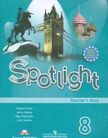FUTURE TIME
Explanations
Prediction 1. Will
Will is used to make predictions. It is often preceded by I think or by opinion words like perhaps.
A time expression is also necessary.
I think it
'11 rain tomorrow. Perhaps she ‘ll be late. In speech, both will and shall are contracted
to '11. Use of shall after I and we is more common in formal speech.
2 Going to
If a
predicted event is very near, and especially in impersonal statements, going to is also commonly used
for predictions. Will can also be used in these examples, with no change of
meaning.
You're
going to fall!
Liverpool
are going to win the Cup.
3 Present
cause
We often make a prediction because we can see the cause of
the event. Look out! There's a bus coining! It's
going to bit us! I can see you're going to have a baby. When is it due?
4 Future
continuous
The future
continuous is used to describe a situation in the future at a particular time.
This time next week we’ll be eating lunch on the plane!
It is also
used to predict a future state or habit at a particular time in the future.
In ten
years time I expect I'll be in London.
And I'll
probably be cycling to work.
5 Future perfect
The future
perfect looks back from a point in the future and refers to indefinite time up
to that point.
By the time we get there, the film will have started.
This means that at the future time when we get there, we can
say:
The film
has started.
Future time clauses 1.After
time expressions when, until and a present tense form
is used, although this refers to future time.
I'll wait
for you here until you get back.
2. The present perfect can be used to emphasize the completion
of an event.
I'll wait
here until you have finished.
Intention. 1Going to
Going to is used
to describe a present intention I'm going to fix
the television tomorrow.
2 Will
Will is also used for
decisions made at the time of speaking. I know,
I'll gel him a wallet for his birthday.
Plans and facts 1. Present continuous
The present continuous is used to describe plans and
arrangements which are definite. Such arrangements may be written in a diary.
Sony, I can't help you, I'm leaving in the morning.
2. Present Simple
The present simple is used to
describe future events which we cannot control. They may be facts, such as
events in a timetable, or a law. The plane for
Paris leaves at 9.45.
Activities
1 Choose the most suitable tense.
a)
Why are you going to buy/will you buy
a new mountain bike?
b) Don't phone between 8.00 and 9.00. I'll study/I'll be
studying then.
c)
Look out! That tree will fall/is going
to fall!
d)
Let me know as soon as Louise will
get/gets here.
e) Great news! Jean and Chris will come/are coming to
stay with us.
f) According to this timetable, the bus is going to
arrive/arrives at 6.00.
g) I have a feeling that something strange is going to
happen/is happening in a minute.
h) The doctor says I will have/am going to have a
baby!
i) Can you call me at 7.00, because I'll leave/I'm leaving
tomorrow.
j) If you arrive late at the sale, the best things will go/will have gone.
2 Put each verb in brackets into the most appropriate
future time form. More than one answer may be possible.
a) I can"t see you on Thursday afternoon. I (visit)am
visiting our Birmingham branch.
b)George (not be)............ back until six. Can I take a
message?
c) What (you buy)............ with the money you won in the
lottery?
d)I don't think you (have).............. any problems at the
airport.
e)
(you take).................... your dog
with you to Scotland?
f)
Can you answer the phone for me? I (lie
down)............. for a while.
g)All the
hotels are full. Where (we spend)............ the night?
h)You'd
better not come in July. My mother (stay)......... with me then.
i) What time (your plane leave).................... ?
j) Leave
the car here. Maybe the police (not notice).......... it.
3 Put each verb in brackets into a suitable future time
form. More than one answer may be possible.
g)By the time we reach home,
the rain (stop) will have stopped.
a)
This time next week I (lie)................ on
the beach in Spain.
b)In ten years' time I (work)............... for a different
company.
c)
If we don't get there by 6, Jack (leave)...........................
d)In July they (be married)........................ for twenty
years.
e) In the year 2500 a lot of people (live)............... on the
moon.
f) When you get to the station, I (wait).................. for
you outside.
h)Don't worry! The plane (land)..................... in a
moment.
i) By the
time you come home, I (finish)..................... the decorating.
j) Come
round between eight and nine. We (watch).......... the match on television
then.
4. Put each verb in brackets into
a suitable tense
Have you ever
wondered what exactly (1) you will be doing (you do) in ten years time?
Well, according to computer expert Tom Vincent, computers (2)…….. (soon be able) to make accurate predictions about thefuture.
Professor
Vincent, from Cambridge University, (3).................................... (hold)
a press conference next week to describe the computer which he calls
"Computafuture".
"This
computer can tell us what life (4)......................................................... (be)
like, based on data describing past events," explains Professor Vincent.
For example,
Computafuture can predict how many people (5) (live) in a
particular area, or whether there (6) …….. (be) a lot of rain during a particular period.
Professor Vincent also believes that by the year 2050,
computers (7) ……. (replace) teachers,
and (8) ………..(also do) most of the jobs now being done by the police.
"Computers are becoming more intelligent all the
time," says Professor Vincent.
"Soon they (9)........................................................... (direct)
traffic and (10)
…… (teach) our children. And telling
us about the future."
5. Put each verb in brackets
into a suitable tense/ All sentences refer to future times.
a)
When I (see) see. you tomorrow, I (tell)........ you
my news.
b) As soon as we (get)......... there, we (phone)......... for a
taxi.
c) I (go)............. to the library before I (do)......... the
shopping.
d)
We (wait)............... here until the rain (stop)..................
e) I (get)............ some money from the bank when it (open)...
f) After you (take)......... the medicine, you (feel)......... better.
g)
You have to stay until you (finish)............ your work.
h) I (let)........... you
know the minute I (hear).......... the results.
i) Before
we (paint)........ the wall, we (have)........ a cup of tea.
j) We (climb).......... over
the wall as soon as it (get)..... dark.
Kyes
la) are you going to buy; b) I'll be studying; c) is going to fall; d) gets; e) are
coming; f) arrives: g) is going to bappen; h) am going to have; i) I'm leaving;
j) will have gone
2.a) am visiting; b) won't be;
c) are you going to buy; d) will have; e) Are you taking/Are you going to take;
f) am going to lie down; g) are we going to spend; h) will be staying/is
staying; i) does your plane leave; j) won't notice
3.a) will have stopped; b)
will be lying; c) will be working; d) will have left; e) will have been
married; 0 will
be living/will live g) will be waiting; h) will/is going to land/will be
landing; i) will have finished; j) will
be watching
1 1) you will be doing; 2) will soon be able; 3) is holding; 4)
will be; 5) will live will be living; 6) will be; 7) will have replaced; 8) will also be doing/do; 9) will be directing: 10) (will be)
teaching
5. a) see, will tell; b) get, will phone; c)
will go. do: d) will wait, stops/has stopped; e) will get, opens; f) take/have
taken, will feel; g) finish/have finished; h) will let, hear; i) paint, will
have; j) will climb,
gets/has
got









Оставьте свой комментарий
Авторизуйтесь, чтобы задавать вопросы.